How to Store Chives The Kitchen Herbs

How to keep chives fresh in the fridge Healthy fruits and vegetables
Chives can be kept fresh in the fridge for about a week when wrapped in a damp paper towel and stored in a resealable plastic bag in the crisper drawer. Can chives be frozen? Yes, chives can be frozen. After rinsing and drying the chives, chop them into small pieces and store them in an airtight container or resealable plastic bag in the freezer.

Drying Fresh Chives In Dianes Kitchen Drying herbs, Chives plant
Once frozen, remove the cubes from the trays and store them in a freezer bag. Alternatively, line a baking sheet with parchment paper and spread out the cut chives in a single layer. Allow the chives to freeze completely. Once frozen, store the chives in a freezer bag or mason jar. Use frozen chives within four to six months.

HOW TO KEEP STRAWBERRY FRESH IN THE REFRIGERATOR FOR WEEKS. YouTube
Step Three. Put the rolled up chives into a gallon plastic storage bag. It's ok if you bend the chives a little to fit them into the bag. Just don't snap them in half so that they bruise. Place rolled chive into a bag. Place the bag in the crisper drawer of the refrigerator. Store refrigerated for at least two weeks.
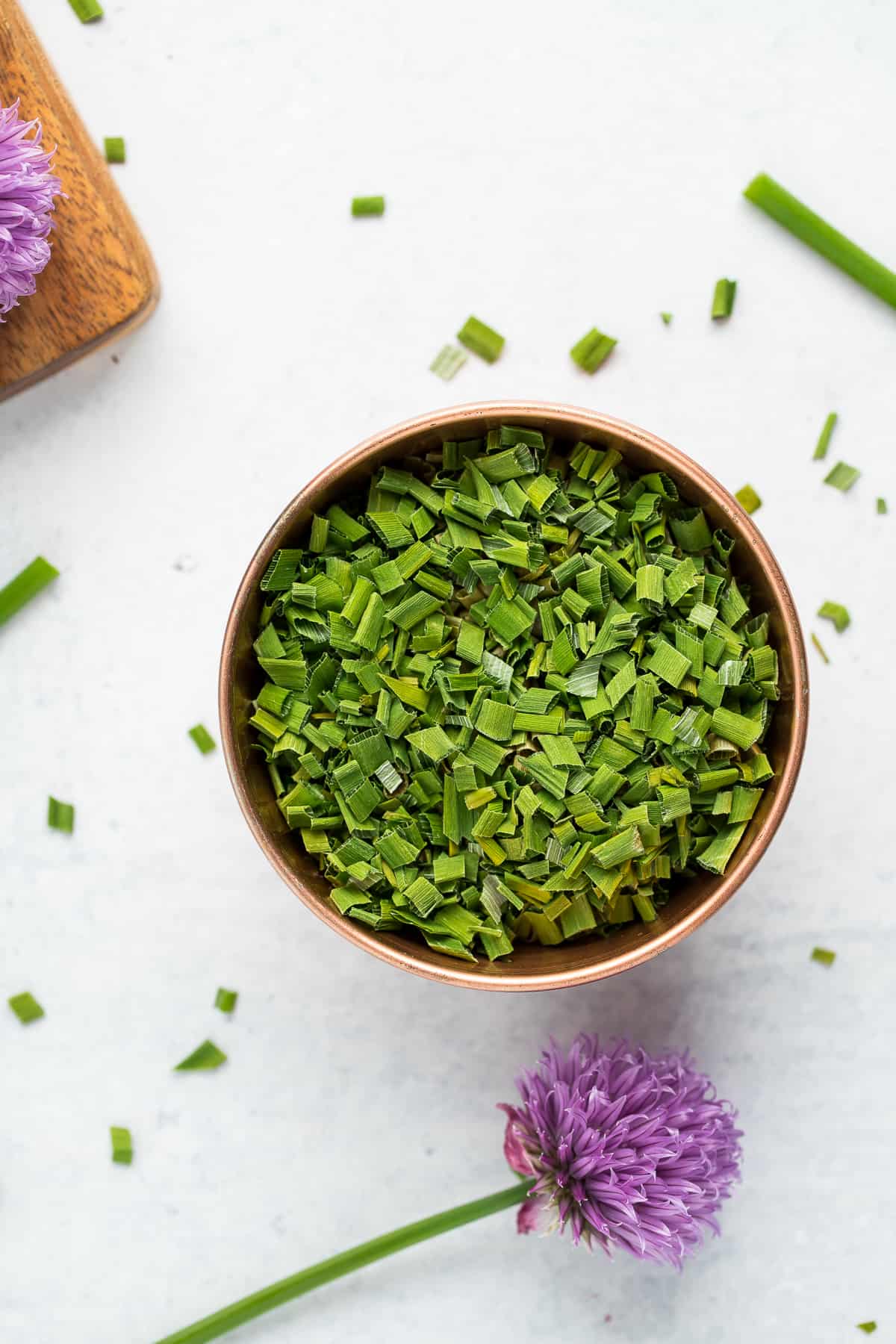
Drying Chives Sustainable Cooks Make Financial Center
The best way to store chives Refrigeration: The optimal way to store chives is in the refrigerator. To do this, follow these steps: 1) Gently rinse the chives under cold water and pat dry with paper towels. 2) Trim off any damaged or yellowed leaves with kitchen scissors or a sharp knife. 3) Wrap the trimmed bunch of chive stems in a damp paper.
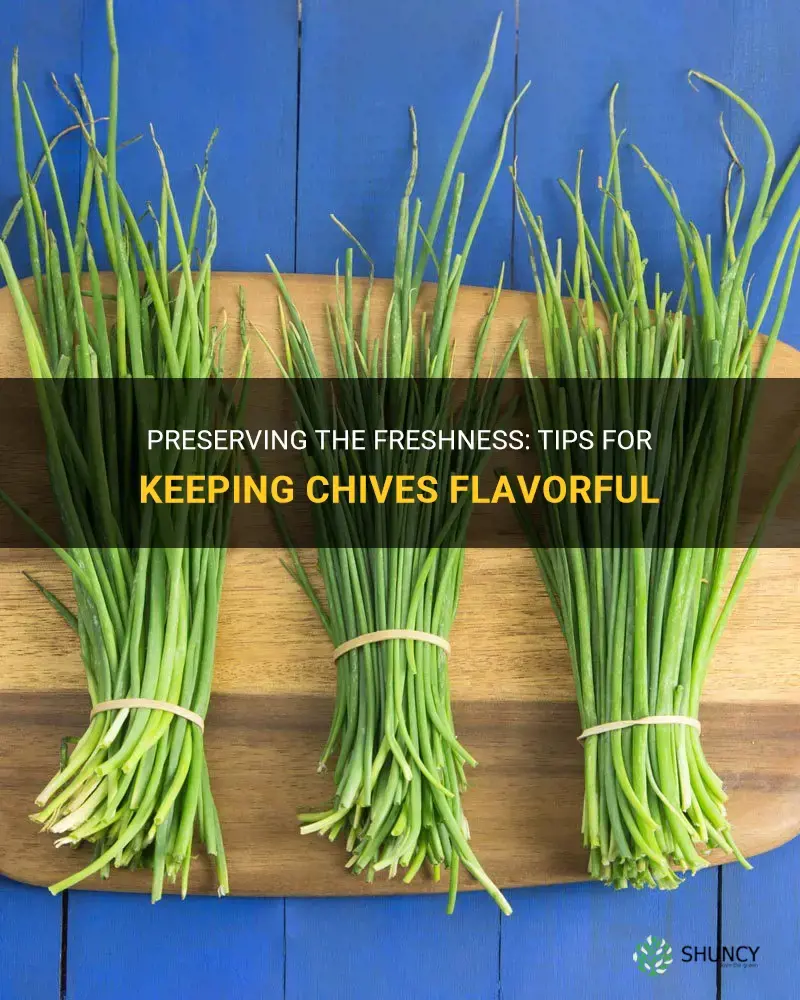
Preserving The Freshness Tips For Keeping Chives Flavorful ShunCy
Refrigerate your chives to keep them fresh for several days. Wrap chives in a slightly damp paper towel and place them in a storage container to maintain optimal humidity. For best results, place this container in the crisper drawer rather than the fridge door to avoid temperature fluctuations.. To preserve chives in the refrigerator, wrap.

How to Store Chives The Kitchen Herbs
1. Wrap in damp paper towel: Take a damp paper towel or kitchen towel and wrap it gently around the fresh cut chives. The moisture from the towel helps to keep the chives hydrated without making them soggy. 2. Place in a plastic bag: Put the wrapped chives in a resealable plastic bag or an airtight container.

What Do Chives Taste Like? Do Chives Taste Good? EatDelights
19 How To Dry And Store Dried Chives. 20 Method 1: Hanging Them. 21 Method 2: In the Oven. 22 Method 3: In the Sun. 23 Method 4: In the Food Dehydrator. 24 Best Mason Jars To Store Chives. 25 KAMOTA Mason Jars 16 oz with regular lids and bands. 26 FRUITEAM Mini Mason Jars with lids and bands.
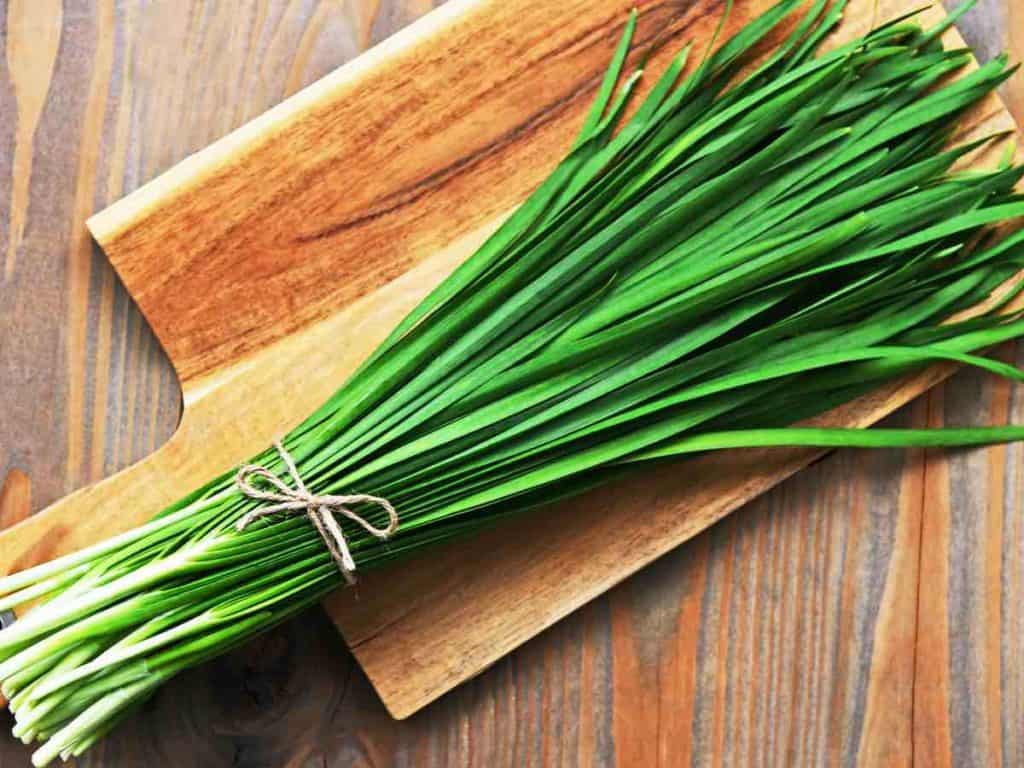
How long do packaged chives last? Eating Expired
Method 2: In the Oven. Rinse the chives under cold running water and remove any dead or withered chives. Pat them dry with a clean towel or kitchen towel until almost dry. Preheat the oven to the lowest temperature, ideally to 185˚ F (85˚ C) or lower. Cut the chives into ¼" inches using a knife or kitchen scissors.

How to Dry Chives For The Best Flavor
This helps to prevent moisture from accumulating and keeps the chives fresh for a longer time. Store the bag in the refrigerator's crisper drawer, which provides a cooler and more humid environment. Using a Glass of Water Method: Another way to store chives in the refrigerator is by using the glass of water method. Fill a glass or a jar with.
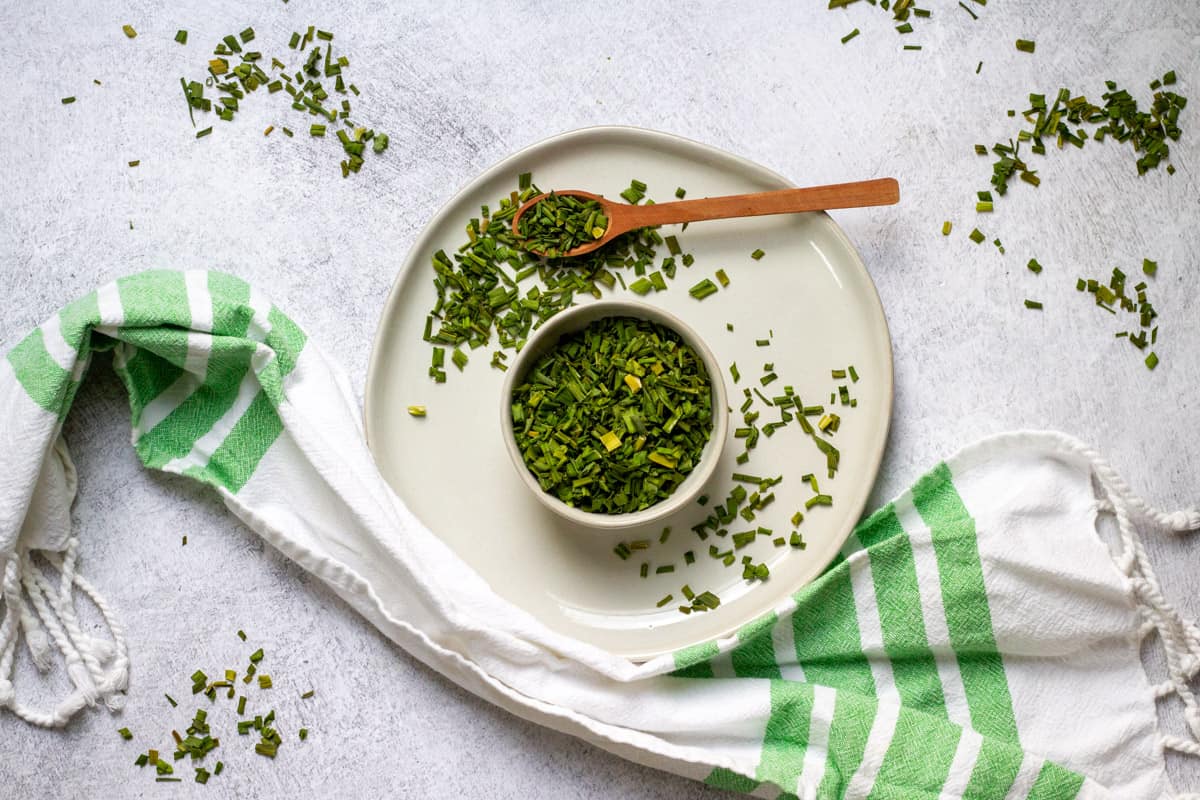
How to Dry Chives in the Oven Champagne Tastes®
Cut the chives into 1-inch pieces and place them in a sterilized jar. Cover the chives with a brine solution made from 1 cup of distilled white vinegar, 1 teaspoon of sugar, and 1 teaspoon of salt. Close the jar and store it in the refrigerator. Pickled chives can be stored for up to one month.
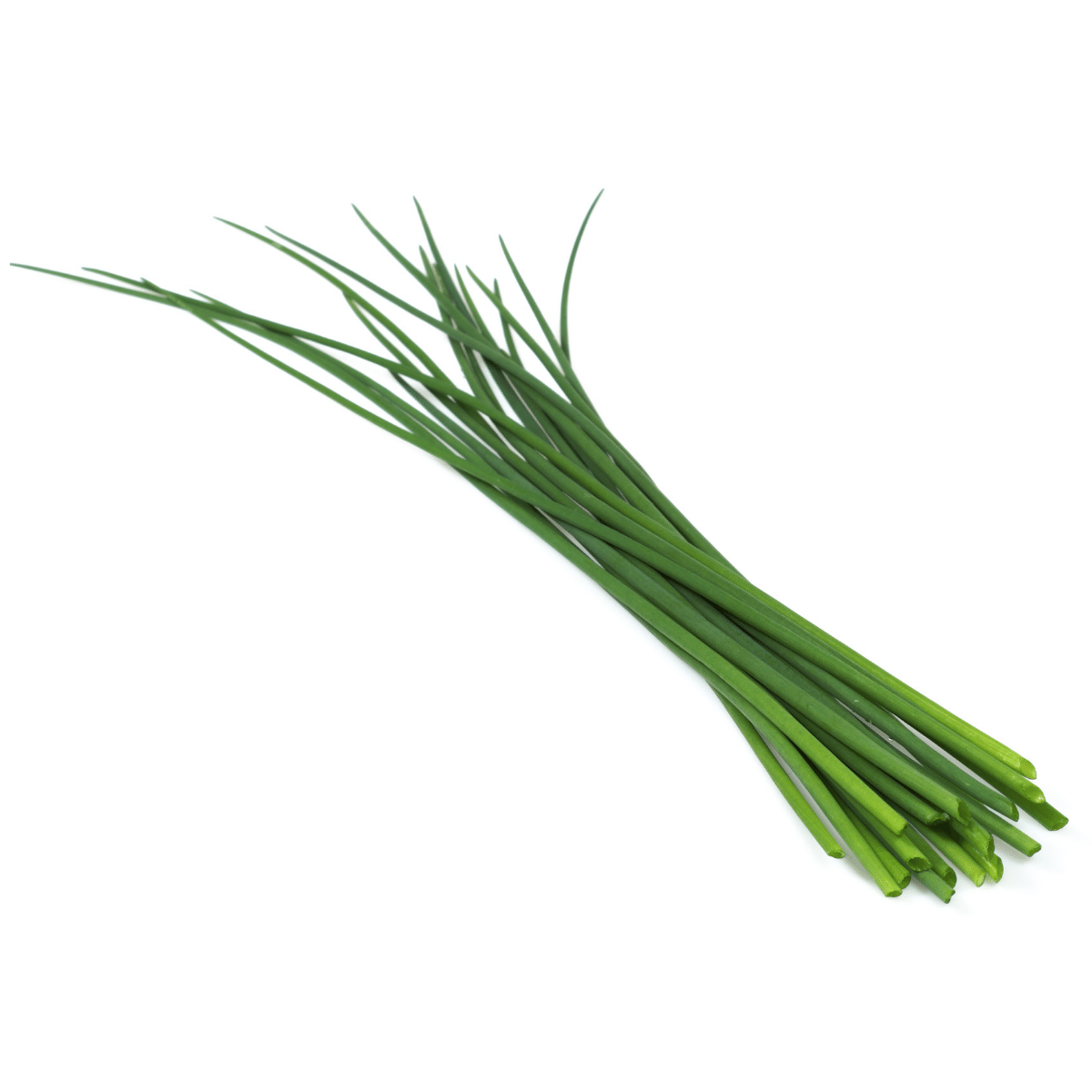
How to Select, Store, and Serve Chives The Produce Moms
Instructions. In a large saucepan, combine potatoes, half-and-half, and butter; season with salt. Bring to a boil, then reduce to a low heat and cook, stirring occasionally, for 25-35 minutes, or until potatoes are tender (the tip of a paring knife meets no resistance) and sauce is thick. Season with salt and stir in the majority of the chives.
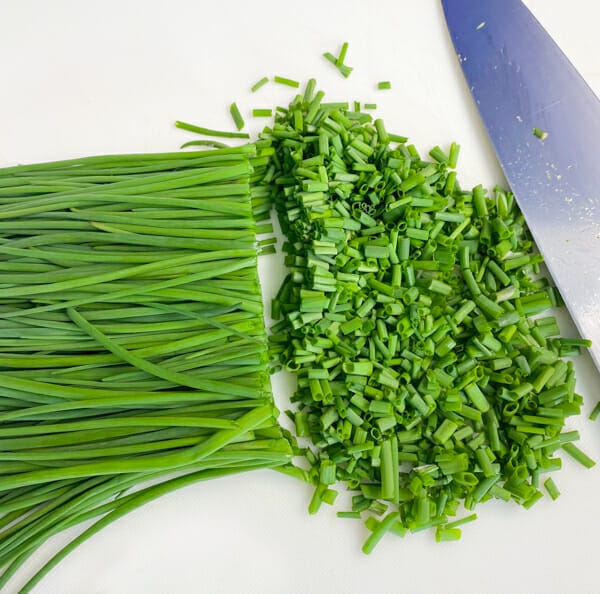
How to Cut and Preserve Chives Freezing and Drying
Proper storage temperature: Chives prefer cool temperatures. Store them in the refrigerator at around 32-40°F (0-4°C) to maintain their crispness and prevent wilting. Use airtight containers: Keep chives in airtight containers or resealable bags to minimize exposure to air and moisture.

How to Grow Chives in 2021 Growing Chives in Your Herb Garden
Benefits of Storing Chives. Storing chives properly offers a multitude of benefits. Here are some of the key advantages: 1. Extending Freshness: When stored correctly, chives can last much longer than their fresh-picked state. By using proper storage methods, you can enjoy the flavor and freshness of chives for an extended period, saving you from the disappointment of wilted or spoiled herbs.

Keep Produce Fresh in Refrigerator YouTube Cream soup recipes, Food
The best way to store freshly harvested or purchased chive is by keeping them in an airtight container such as Ziploc bags or glass jars with tight lids in your refrigerator's vegetable drawer. This helps prevent moisture loss and keeps the herb fresh for up two weeks.

Tips For Keeping Food Fresh In The Fridge Facty
To store chives, keep them fresh in the refrigerator or preserve them for up to 1 year by freezing or drying them. Fresh chives will have more flavor but dried or frozen chives will last much longer. Steps. Method 1. Method 1 of 3: Keeping Chives in the Refrigerator. Download Article
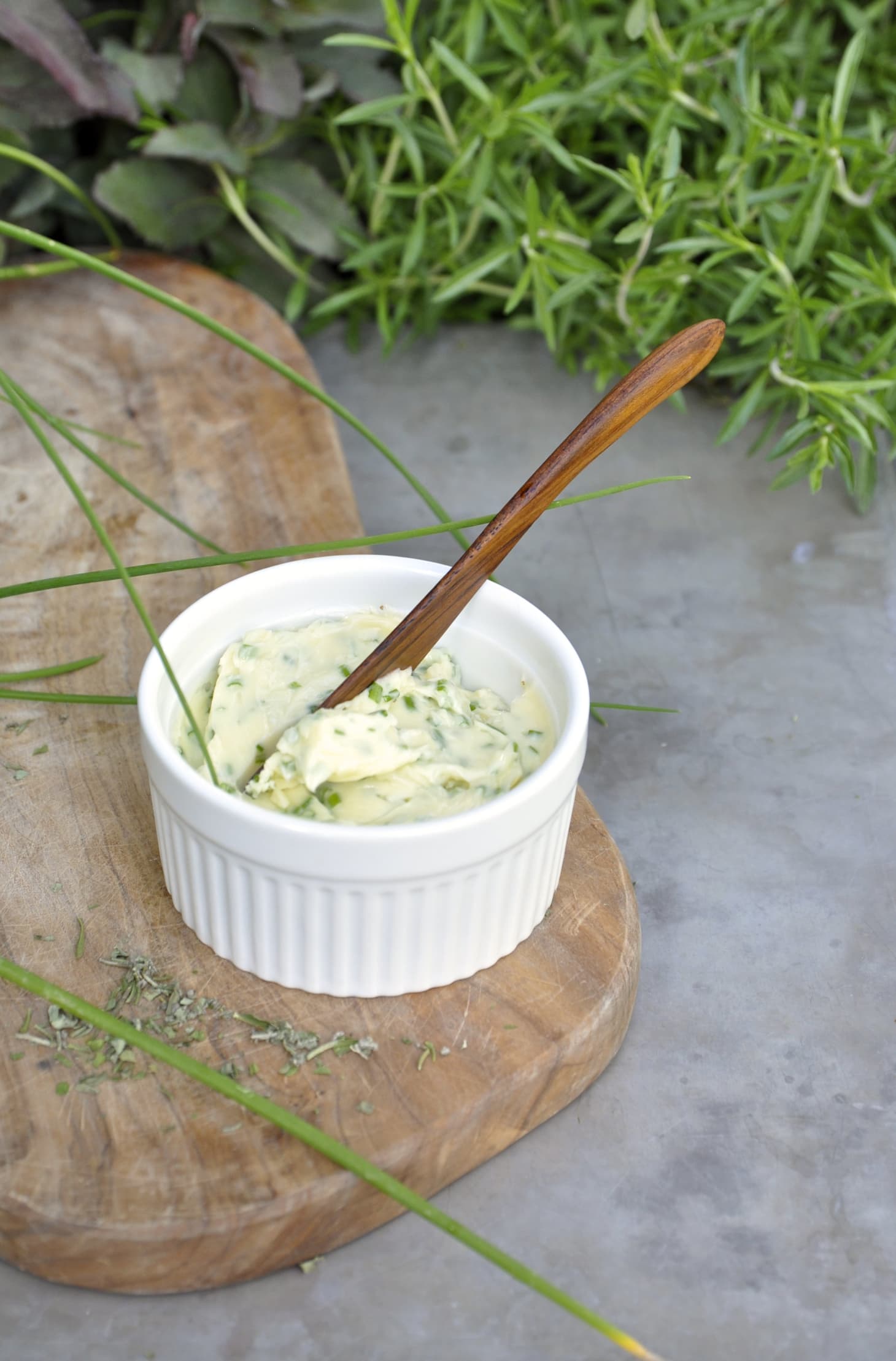
The Best Ways to Preserve Chives Kitchn
To store fresh chives in the refrigerator, wrap them loosely in plastic wrap or use a partially closed resealable bag. Avoid tightly wrapping the chives as it can cause moisture and mold. Place the wrapped chives in the door of the refrigerator, which is the warmest spot. Remember to wash the chives right before using them to avoid moisture.